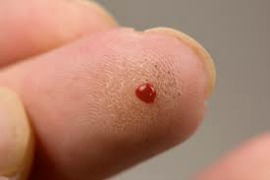Most diabetics are familiar with the daily task of pricking their finger to draw blood, it’s something they must do to test their levels. But a new tool on the horizon will allow diabetics to ditch the pricking and it’s as easy as breathing.
Oxford University researchers have developed an breathalyzer that replaces the need for drawing blood, according to ExtremeTech.
As pointed out in the report, published in the American Chemical Society journal Analytical Chemistry, diabetics can have fruity smelling breath, which indicates acetone. It’s a natural byproduct of the metabolism.
A strong presence of acetone signifies ketoacidosis. This could mean that there isn’t enough insulin in the bloodstream to handle glucose, which is a signal of diabetes.
However, It’s important to keep in mind that fruity smelling breath doesn’t always mean a person is diabetic.
There are so many other compounds in our breath that an accurate measure of acetone levels has traditionally required a mass spectrometer, a large and expensive machine. The Oxford researchers’ prototype breathalyzer is a reusable handheld unit that concentrates exhaled breath in a cavity and then uses an on-board near-infrared laser to accurately measure the acetone level in the sample.
In the Oxford testing, the small unit’s measurements across a wide range of concentrations were a “close match” to measurements from a mass spectrometer. The Oxford team is continuing work on the acetone breathalyzer in the hope that it could be used for earlier detection of diabetes.
The Oxford device won’t save diagnosed diabetics from their own daily blood glucose tests, but a group at the University of Cambridge is working on its own breathalyzer, aimed at measuring the molecule isoprene in exhaled breath. If the Cambridge team is successful, diabetics may also be able to avoid the annoying little pricks.

